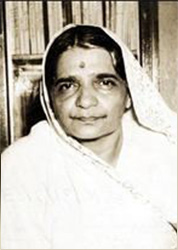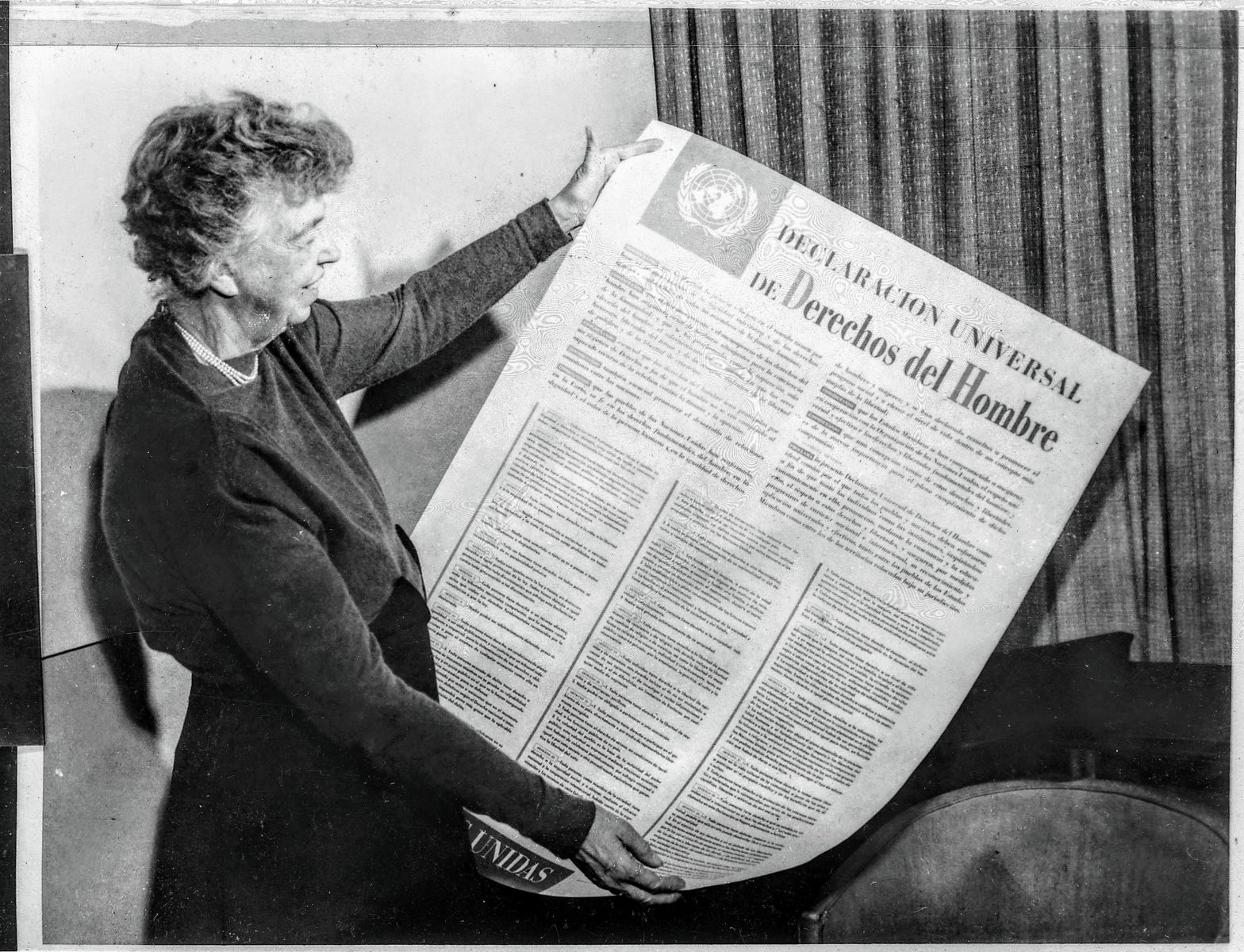The final post in our series for 16 Days of Activism Against Gender-based Violence. Photo: United Nations.
On December 10, 1948 the newly established General Assembly of the United Nations adopted the Universal Declaration for Human Rights (UDHR). No nation voted against it, although a few, like Saudi Arabia, abstained. That means today is the 70th anniversary of what is undoubtedly the most important document of the modern era, and expressed the aspirations of a world population still reeling from the horrors wrought by fascism during World War II.
The UDHR is a political document – hammered out over two years by a Commission ‘“made up of 18 members from various political, cultural and religious backgrounds. Eleanor Roosevelt, widow of American President Franklin D. Roosevelt, chaired the UDHR drafting committee.”
The preamble begins, “Whereas recognition of the inherent dignity and of the equal and inalienable rights of all members of the human family is the foundation of freedom, justice and peace in the world,
“Whereas disregard and contempt for human rights have resulted in barbarous acts which have outraged the conscience of mankind, and the advent of a world in which human beings shall enjoy freedom of speech and belief and freedom from fear and want has been proclaimed as the highest aspiration of the common people,” (That paragraph refers to the “Four Freedoms” speech by President Roosevelt before the US entered World War II, of his vision for the Post-war world.)
If you could sum up the 16 Days of Activism in just 3 words, “freedom from fear” could be it. Not only do a huge proportion of women and girls fall victim to gender-based violence, all women and girls live in fear of it.
Many today argue (as they did in 1948) that Human Rights are not universal, but Western – and that the thought of gender equality is especially Western. But there is rich literature from every region and culture demonstrating that these ideas have been held by spiritual leaders forever.
Article One begins: “All human beings are born free and equal in dignity and rights.” It reminds many of the US Declaration of Independence – “We hold these truths to be self-evident, that all men are created equal.” Apparently in the drafting stage, Mrs. Roosevelt prefered using the language “All men.” So who got it changed? It was Hansa Mehta of India.

India is a nation where the status of women is exceptionally bad, and its Women’s Rights Movement goes back more than 150 years in its struggle for gender justice. Hansa Mehta was among the 15 women who were part of the constituent assembly that drafted India’s Constitution – (which, unlike the US Constitution, establishes Equal Rights for Women), and she served as president of the All India Women’s Conference in 1945-46 where she proposed a Charter of Women’s Rights.
The Nobel Prize-winning Economist Amartya Sen – a champion of women’s rights – tells the story that men in India frequently come up to him and argue “Our Women Don’t Think This Way!” Sen’s response is – “Well, then it’s about time they had the opportunity to do so!” Certainly, however, millions of Indian women have thought that way for a long time. Had Hansa Mehta not been one of them, its likely the forces of patriarchy would point to the UDHR as a document that reinforces their misogyny.


